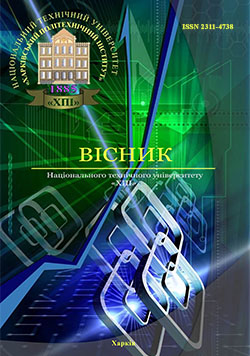MODELS AND METHODS OF SAFETY-ORIENTED PROJECT MANAGEMENT OF DEVELOPMENT OF COMPLEX SYSTEMS: METHODOLOGICAL APPROACH
DOI:
https://doi.org/10.20998/2413-3000.2016.1174.19Keywords:
complex systems, safety-oriented management, methodology, cognitive model, safety, airportAbstract
The methods and models of safety-oriented project management of the development of complex systems are proposed resulting from the convergence of existing approaches in project management in contrast to the mechanism of value-oriented management. A cognitive model of safety oriented project management of the development of complex systems is developed, which provides a synergistic effect that is to move the system from the original (pre) condition in an optimal one from the viewpoint of life safety - post-project state. The approach of assessment the project complexity is proposed, which consists in taking into account the seasonal component of a time characteristic of life cycles of complex organizational and technical systems with occupancy. This enabled to take into account the seasonal component in simulation models of life cycle of the product operation in complex organizational and technical system, modeling the critical points of operation of systems with occupancy, which forms a new methodology for safety-oriented management of projects, programs and portfolios of projects with the formalization of the elements of complexity.References
Tanaka H. (2007). Cross-cultural project management on major-sized global oil and gas plant projects. In D. I. Cleland & L.R. Ireland (Eds), Project manager's handbook – Applying best practices across global industries, 10, 151–165. doi.org/10.1002/pmj.20028
Tanaka H. (2013). A viable system model reinforced by meta program management. Procedia – Social and Behavioural Sciences Journal, 74,135–145. doi.org/10.1016/j.sbspro.2013.03.017.
Bushueva N. S(2007).Modeli i metody proaktivnogo upravlenija programmami organizacionnogo razvitija [Models and methods of proactive program management of organization development]. Kiev: Nauk. svіt, 270 [In Russian].
Bushuev S. D, & Neizvesnyj S. I. (2013). Genom metodologij upravlenija proektami kak universal'naja model' znanij [Methodology gene of project management us universal knowledge model].Upravlіnnja rozvitkom skladnih sistem, 14, 15–17 [In Russian].
Jaroshenko F. A., Bushuev S. D., & Bogdan T. P. (2012). Antikrizisnoe upravlenie finansami v uslovijah neopredelennosti [Crisis finance management in conditions of uncertainty]. Ukrainskaja associacija upravlenija proektami. Kiev, 167 [InRussian].
Zachko O. B.(2015). Metodologіchnij bazis bezpeko-orієntovanogo upravlіnnja proektami rozvitku skladnih sistem [Methodologicalbasisof safety-oriented project management of development complex system].Upravlіnnja rozvitkom skladnih sistem. 23, 1, 51–55 [InUkrainian].
Jaroshenko F. A., Bushuev S. D., & Tanaka H. (2012).Rukovodstvo innovacionnymi proektami i programmami na osnove sistemy znanij P2M [Government of innovation projects and programs based on knowledge system P2M]. Kiev: Sammit-Kniga, 272 [In Russian].
Bushuev S. D, Bushueva N. S., & Babaev I. A et. al.(2010).Kreativnye tehnologii v upravlenii proektami i programmami [Creative technologies in project and program management]. Kiev: Sammit kniga, 768 [In Russian].
Chumachenko I. V., & Docenko N. V. (2011).Formirovanie holisticheskoj cennosti innovacionnyh proektov i programm [The formation of holistic values of innovation projects and programs].Vostochno-Evropejskijzhurnalperedovyhtehnologij, 5 (49), 1, 14–16. doi.org/10.15587/1729-4061.
Downloads
Published
Issue
Section
License
Copyright (c) 2016 Олег Богданович ЗАЧКО, Ірина Григорівна ЗАЧКО

This work is licensed under a Creative Commons Attribution-NonCommercial-ShareAlike 4.0 International License.
Our journal abides by the Creative Commons copyright rights and permissions for open access journals.
Authors who publish with this journal agree to the following terms:
Authors hold the copyright without restrictions and grant the journal right of first publication with the work simultaneously licensed under a Creative Commons Attribution-NonCommercial-ShareAlike 4.0 International License (CC BY-NC-SA 4.0) that allows others to share the work with an acknowledgement of the work's authorship and initial publication in this journal.
Authors are able to enter into separate, additional contractual arrangements for the non-commercial and non-exclusive distribution of the journal's published version of the work (e.g., post it to an institutional repository or publish it in a book), with an acknowledgement of its initial publication in this journal.
Authors are permitted and encouraged to post their published work online (e.g., in institutional repositories or on their website) as it can lead to productive exchanges, as well as earlier and greater citation of published work.

